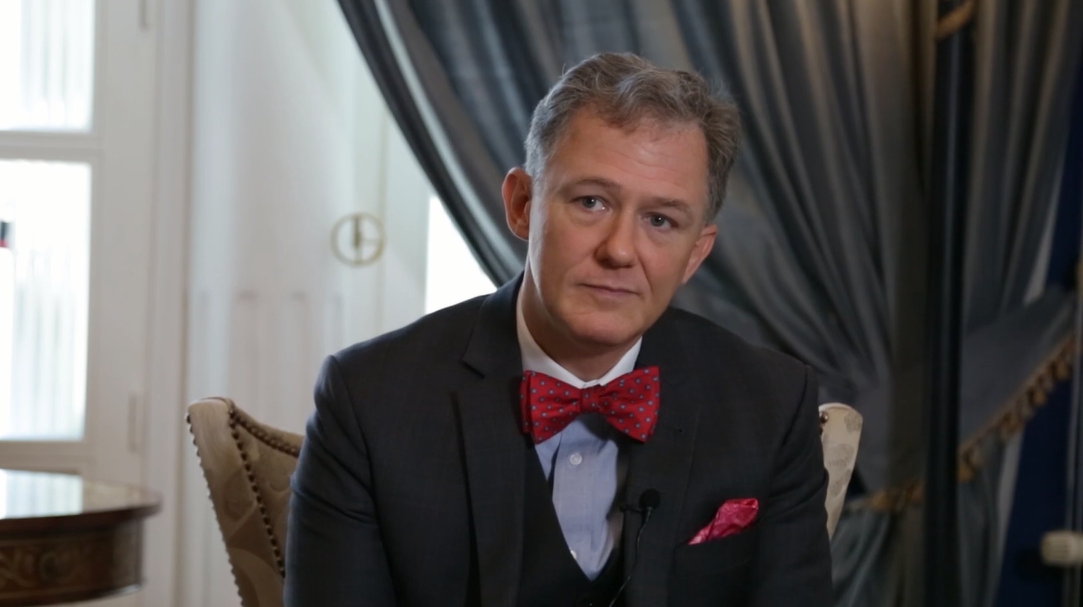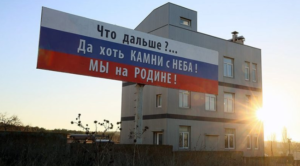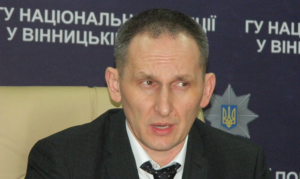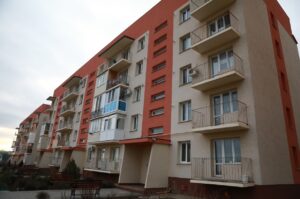Having cancelled the Free Economic Zone «Crimea» that «benefitted not Ukrainian national interests but oligarchic personal business interests, Ukraine can show that it is serious» about changing the sanction policy, that «Ukraine is not asking partners to do more than Ukraine itself is doing». It is what George Kent, the interim Charge d’affaires at the Embassy of the United States to Ukraine and the Deputy Assistant Secretary of State for European and Eurasian Affairs, stated in his interview to the Center for Journalist Investigations.
In his opinion, the second step for coordinating the sanction policy of countries-partners is to use the convening power of the Crimea Platform. Its participants should focus on forging a more common and more effective approach at holding Russians who have stolen Ukrainian property to account and imposing costs for Russian actions. The US authorities are more than willing to consider specific proposals from the Ukrainian government and civil society about new packages of sanctions.
The conversation of Valentyna SAMAR, the Chief Editor of the Center for Journalist Investigations, and Yulia KAZDOBINA, the Head of the Ukrainian Foundation for Security Studies, with George KENT, the interim Charge d’affaires at the Embassy of the United States to Ukraine, continues a series of interviews within the special project «How Do Crimean Sanctions Work?»
Valentyna Samar: Mr. Kent, thank you for agreeing to this interview despite your tight schedule. July 25 marks three years since the Crimea declaration known also as the Pompeo Declaration was adopted. Before the summit of the «Crimean Platform», some people in Ukraine called on Western partners to make the policy of non-recognition of the illegal annexation of the Autonomous Republic of Crimea and Sebastopol by Russiamore meaningful. What do you think about it?
George Kent: So, it’s wonderful to have this chance to talk about Crimea with you and about our policy. It’s hard to believe that it’s already been three years. The Crimea Declaration that the US government issued in July of 2018 was a principled statement of our policy. It consciously echoed what was known as the Welles Declaration of 1940 where the United States did not recognize the results of the Molotov-Ribbentrop pact. We did not recognize the forcible incorporation of Latvia, Estonia and Lithuania into the Soviet Union and that remained our policy until those three republic regained de-facto their independence.
So that was the intent and purpose that we stated on the record, publicly: the United States did not and would not recognize Russia’s claimed annexation of Crimea.
However, a policy declaration is a policy declaration. And then the question is «And what’s next?»
I think that’s why we very much welcome the initiative of Ukraine to hold the Crimea Platform because it is critically important to keep Crimea on the international agenda. And there is no better country to take that initiative than Ukraine.
I think this is the first step, having the initial event with high-level participation. But it’s only a first step because that conversation needs to be continuous and it needs to be not only at the level of governments. It’s also critically important for Ukraine to keep this issue alive and in discussion in civil society, among circles of experts and academics, and I think that is also a critically important task of Ukraine and its friends.
It is known that Russia tries to weaponize history. They lied about the Molotov-Ribbentrop pact for fifty years and they try to ignore responsibility for their own actions whether it’s the shoot down of MH-17, or there is the history of the Great Terror and the Holodomor. So, in this context it’s important that Ukraine also helps convene academics, understanding that academics and experts have their own opinions but to ensure that their opinions are informed by facts and not by false Russian narratives.
Valentyna Samar: I would like to clarify – is any transformation of the policy of non-recognition of the Russian illegal annexation of Crimea possible today? How can this policy be made practical? The March 27, 2014 Resolution of the UN General Assembly lays down key principles of the non-recognition policy. However, to my mind, different countries have their own interpretation of the policy…
George Kent: I don’t think that there are many countries that formally accept the Russian annexation of Crimea. So, just within the context of the UN it is also important that Ukraine – and you have a capable ambassador in New York Seriy Kyslytsya – ensures that the issue comes up every year. Because you can have a vote in 2014 and, as you say, some countries forget about it. But each year there is a resolution and each year the international community reaffirms its sense and non-acceptance of what Russia did. That is the diplomatic track.
What’s the practical impact? I think there is diplomacy, there is the reality that no one is going to invade Crimea to so-called liberate it. And the challenge comes not with the diplomacy but with strategies to ensure that the Ukrainian citizens that are living under occupation can still feel that they are being treated as Ukrainians. That is primarily a task for the Ukrainian government but also with the support of partners to look for ways of keeping the connection alive. When Ukrainians come out of Crimea that they are not treated as somehow betrayers of the national interest, that they are not fined for coming back and forth between Crimea and Ukraine.
Just like people who are in Donbass should not be fined for having to go through Russia to get into Ukraine because the Russians have closed the crossing points.
So, I think you’ve got the international diplomatic track, you have working in the civil society and the academic, and then there are things Ukraine controls on its own to ensure that the connections between those in occupied territories – Crimea and Donbass – are treated fully as citizens, and you can count on western partners also to support your efforts.
Yulia Kazdobina: It is clear the sanctions are an important component of the non-recognition policy. Recently analysts noted that the position of the Biden administration as well as the EU position on sanctions are gradually changing. The recent initiative of Chancellor Merkel and President Macron to hold a summit with President Putin surprised many people. EU-Russia summits have been frozen since 2014, when Russia occupied Crimea. In Ukraine, the US-German declaration about Nordstream-2 was perceived very negatively. It is already called «the second Budapest Memorandum». You have worked with Ukraine for many years and you should know the term «betrayal» (zrada). Here is the question: please, explain why this declaration is not betrayal? Does it contradict the clauses of the US law CAATSA?
George Kent: So, first I would say that in the end despite the proposal by Chancellor Merker and President Macron for the EU summit many members of the European Union were opposed and there is not going to be such a meeting.
When President Biden met with President Putin in Geneva, it was to send a very clear message about our expectations for the relationship; to say that there were areas where we can work on and mutual interest, such as climate change, strategic stability talks, i.e. arms control, as well as some limited regional conflict areas like Syria, Libya and North Korea.
But beyond that Russia’s actions prevent any bettering of the US-Russia relationship. Unfortunately.
Because in the same way that in an ideal world you would not have Russian troops occupying 7% of Ukrainian territory, killing Ukrainians on Ukrainian territory in an ideal world relations would be better with the United States and the European Union.
But I think the focus and the problem is Russian behavior.
Now, the question of the US and German joint statement this week on Nordstream-2. Fundamentally it starts from the issue of the commitment by the United States to Ukraine’s security. That’s an issue of military security. That’s also an issue of energy security.
We think Nordsteam-2 is a bad deal that should not be completed. In the six months since Joe Biden became President, we’ve sanctioned 19 Russian entities and ships. The ships that are laying pipe are sanctioned by the US. Those sanctions did not stop the actions of those ships laying pipe. And it’s likely that by the end of the summer the second line will be complete. So, the issue is not stopping the physical laying of pipes. We’ve sanctioned the ships, they are still doing it.
The real issue in the next stage is will Germany license the pipeline to operate. That’s not a competency in the US or even in Brussels. It’s a national competency.
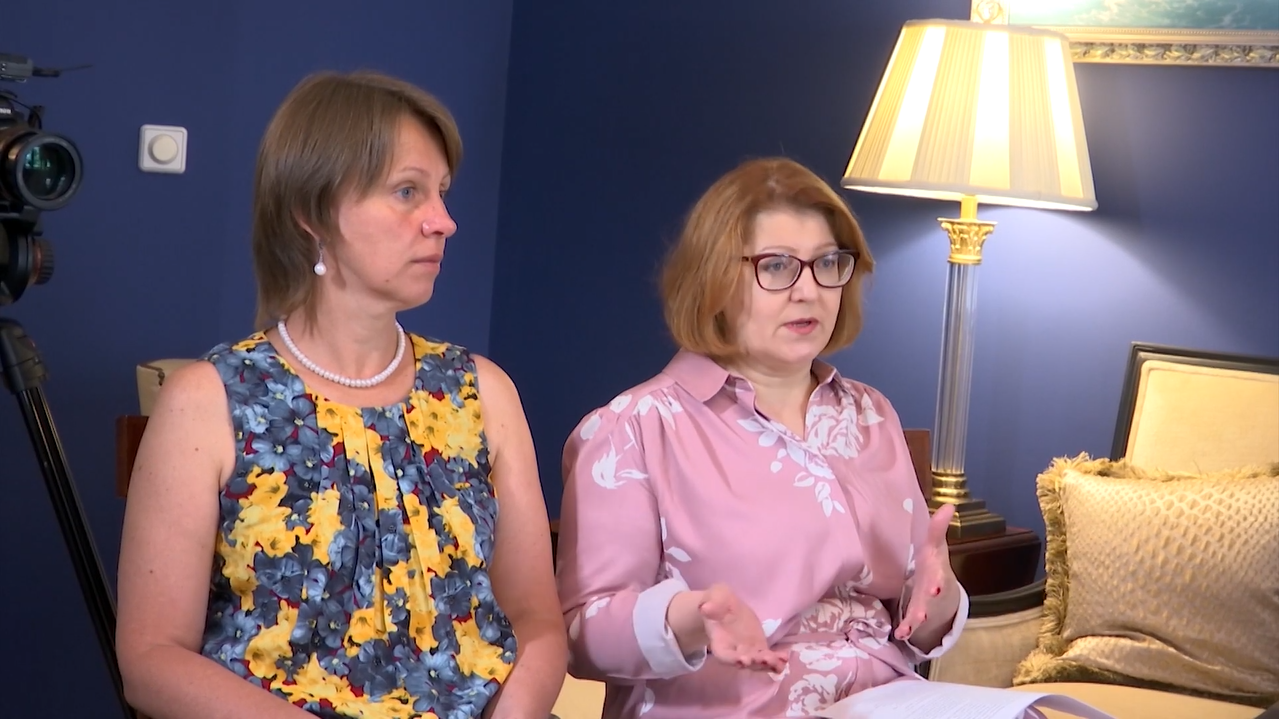
Julia Kazdobina and Valentyna Samar Photo by investigator.org.ua
So, what we did was that we engaged the Germans diplomatically and said, «you are the leader of Europe, you are often sited to say that, you support the concept of European solidarity, you need to stay true in solidarity to the eastern members of the European Union to key partners like Ukraine».
And together the United States and Germany cannot allow Russia to weaponize energy. So, the first focus and this is what Chancellor Merkel said when she was in Washington on July 15th is that Germany, not just the US, is committed not to allow Russia to weaponize energy.
What the implications of that is, that Germany should use its leverage through the process of being able to license an operation to ensure that Russia commits to an extension of the transit agreement to allow enough transit gas to come through Ukraine to keep the pipeline operating, to keep the diversification of supplies into the European Union.
So, I think there are high expectations on the Germans doing frankly what they did two years ago in 2019 when it was German pressure that led to Russia signing a five year transit agreement with Ukraine. And our expectation is that Germany will do again now what it did in 2019.
Furthermore, the next part of the discussion was not looking into what happens this winter or the next year but it’s looking forward. It is clear that because of the European Green deal and the challenge of climate change that the world economy is going to be shifting out of carbon-based energy sources. And so, there’s also the commitment, and we pushed Germany to make a greater direct commitment to invest in Ukraine’s transformation in its energy mix. And that’s going to be a painful transformation for many countries, but there are opportunities. Some of them may be focused with Western Europe partnering, hydrogen production which is a ten-year project.
Some of those opportunities are with the United States. Now, there are different definitions of what green energy means, but for the US, we believe that nuclear is a part of that mix and there is a technology called small modular reactors that offers many opportunities to generate clean energy. It can generate hydrogen. And working with the US, Ukraine could be an early adopter and regional and world leader in that. And so I think how countries look at their energy mix, how they position themselves for success in the future is what responsible leaders do.
And the United States remains absolutely committed to Ukraine’s success, its ability to defend itself, its ability to transform its energy sector, its ability to de-link from the soviet legacy institutions and era. And that inference in the electricity would mean eventually being able to join ENTSO-E – the European network of electricity transmission operators and break away from the current joint system with Russia and Belarus and also the Baltic countries that also have not managed to de-link from the old grid and join the European grid.
So I think there are a lot of opportunities. The joint statement is just a starting point, and there is a lot of tough work to do from the US, from Germany, from Ukraine to make Ukraine successful in all these spheres and ensure that Russia does not have the leverage to bring against Ukraine.
Valentyna Samar: A small clarification, if I may. Were the conditions of this US-Germany declaration coordinated in any way with Ukraine, with the Ukrainian leadership? I am wondering whether there was a violation of the good old principle «nothing about Ukraine without Ukraine»?
George Kent: I fully support the «nothing about Ukraine without Ukraine» approach. I think when people use the word «consultations» and there were many moments of consultations over the last three months, that does not mean agreement in the sense that… the US and Germany frankly did not agree on many of the points, we came to a joint statement. We were talking to the Ukrainian officials repeatedly, we heard Ukrainian concerns, Ukraine did not sign this joint statement, though. This was a joint statement by the US and Germany, there were intense conversations, consultations between the United States and the Ukrainian officials as well as conversations between the Ukrainian officials and German officials.
And I think that one of the ideas that I’ve heard when we had our Counselor Derek Chollet in Kyiv was that there should be a three-way conversation going forward between the US, Germany and Ukraine and we think that’s a good idea. And so we’ll be working with our German and Ukrainian friends about making that a reality.
Valentyna Samar: I would like to ask you to explain in detail the policy of the Biden administration towards sanctions on Russia and, in particular, the so-called Crimean sanctions, i.e. restrictions related to the Crimean peninsula. This sanction regime has been mainly formed between 2014 and 2018. Sanction lists have been regularly updated. However, we see that so-called «secondary sanctions» stipulated by the US legislation are not applied at all. I mean that contractors of legal entities under sanctions should have been sanctioned, too. For example, shipyards stolen from Ukraine have dozens and hundreds of contractors in Russia and abroad. But they are not sanctioned.
The second question is about sectoral sanctions, for example, all Russian ship building industry, about land market in Crimea (Crimean lands are actively redistributed for the benefit of Russian businesses and top-officials, whereas Crimean residents are discriminated against), about sanctions for the systemic violation of human rights. It is what Ukraine expects today from Western partners. It is not so much about strengthening sanctions as about increasing their effectiveness. In order to do it, the monitoring of the application of sanctions is needed. As far as we know, there is no such monitoring…
George Kent: There are probably ten or fifteen questions in that one question and so I will start answering them but you may have to remind me of them. I am going to start with one of your comments, maybe question five, six or seven in the middle. And that’s the issue of buying land that benefitted Russian businesses and not Crimean residents.
The first time I visited Crimea was in 2005. I remember meeting with Liliya Budjurova and other people that I very much respect in Crimea. And the number one issue people were talking about in 2005 when Crimea was part of Ukraine not just juridically but de facto, you had Ukrainian authorities making the decisions, was why Russians were able to buy land and Crimean residents were being disadvantaged. So, the question is a very legitimate question and you can go back and ask every single Ukrainian official who was in charge of Crimea, why did they do that in the 1990ies and the 2000nds. . So, it did not start happening in 2014. I agree with you that it accelerated in 2014.
Going back to your first question, I think that there are indications that the US sanctions on Crimea have limited some of the Russian businesses including financial businesses and banks that otherwise would have had a more active presence there. It’s not absolute but businesses that move into Crimea formally risk being sanctioned by the US.
We started with a limited level of sanctions in 2014, as you mentioned, there were what we call «sanctions maintenance packages» which is I guess a technical term, but as you said there were additional names of individuals and companies that were added. Earlier this year there were several companies that I believe were involved in building of the bridge across the Kerch Strait. The EU had sanctioned them last year and we went ahead and added them if you will in building out our list.
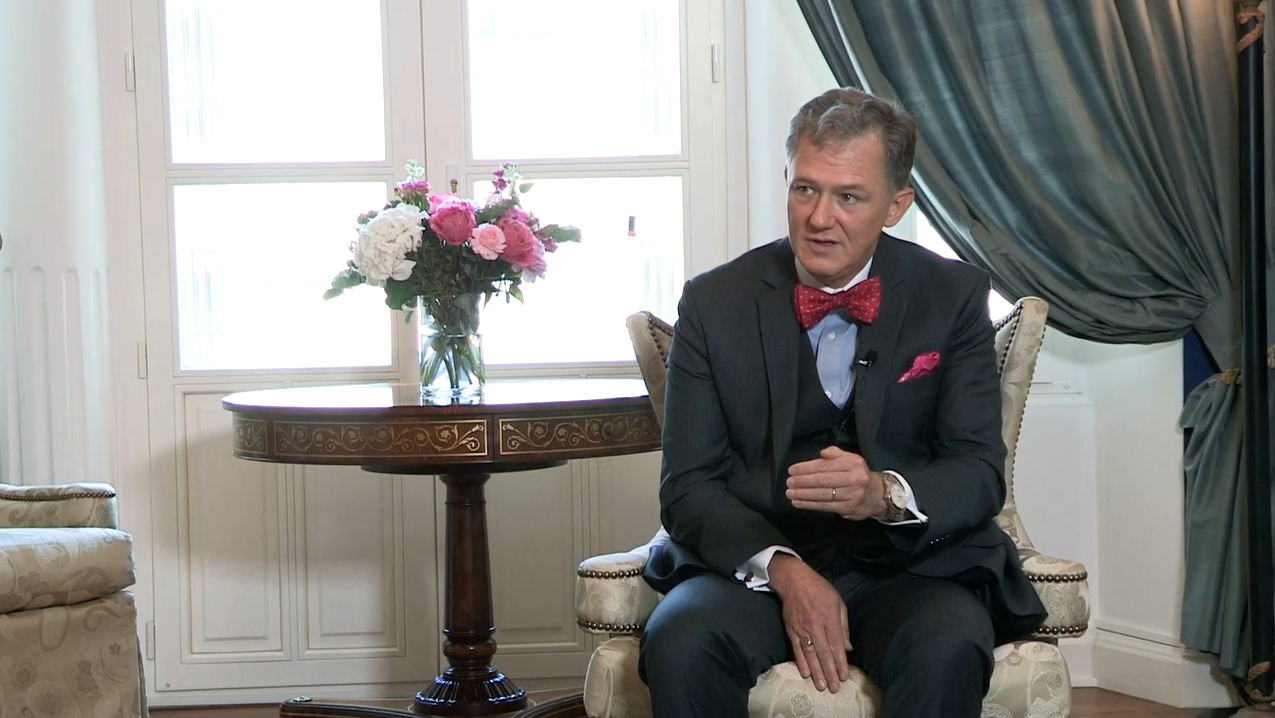
George Kent, the interim Charge d’affaires at the Embassy of the United States to Ukraine and the Deputy Assistant Secretary of State Photo by investigator.org.ua
So the opportunity is open for additional sanctions actions to happen and the US authorities are more than willing to listen to a specific information from a variety of sources including the Ukrainian government and the Ukrainian civil society for consideration because our commitment to implement not only our laws but the opportunities that came out of the executive order signed by President Obama in 2014 remains.
And there is a specific one about Crimea and there are also other legal authorities for Russians in particular who undermine Ukraine’s territorial integrity. And we remain willing to use those authorities to hold individuals and companies to account who are taking actions that you described in Crimea.
I think a step in terms of what happens when specific properties are either taken over or there is no compensation that really in the first place has to be a responsibility of the Ukrainian owners as well as the Ukrainian government. And I know that Ukraine has sued in international arbitration and other courts. And that’s right and that’s exactly what Ukraine should do because essentially what Russia did was steal an incredible amount by not just occupying territory and oppressing Crimeans and putting them sometimes in jail or sending them to Russia but they also just stole a tremendous amount of economic assets. And so Ukraine has some options to pursue legal suits and they should take advantage of those options.
Valentyna Samar: Mr. Kent, to put it briefly – how will the sanction policy of the Biden administration differ from the policy of the Trump administration?
George Kent: I think there is a commitment by the Biden administration, by the officials in the Biden administration to hold Russian actors to account. Again, this was a part of the message that President Biden delivered to Vladimir Putin when they met in Geneva. President Biden ensured earlier in the spring that we took sanction actions against Russian interference in our election, Russian cyber-attacks, and other forms of Russian aggression which included using chemical weapons like Novichok against individuals in the UK, Russian opposition figures within Russia, assassination efforts in other countries to include even downtown Berlin.
But you Ukrainians obviously know that Russia has also used those methods killing people here on the territory of Ukraine with the car bombs and the like.
So that was a clear message that was sent. And the willingness to respond to future Russian actions was made clear by President Biden.
Yulia Kazdobina: Another problem created by the occupation of Crimea is militarization and its risks. To your mind, is current pressure on the Russian Federation sufficient to deter Russia? Besides sanctions, what other instruments can be used?
George Kent: I think the militarization of the Crimean Peninsula is a matter of concern for regional security, so one of the mechanisms available is within the Organization for Security and Cooperation in Europe, OSCE. There are also possibilities within the UN system. You have possibilities with the OSCE and again working with allies as well as strategic messaging to get that word out and to continue to raise the various elements of Russia’s occupation of Crimea whether that is again the human rights dimension, the economic dimension which you raised and, in this case, the military or regional security dimension.
And I would say that another thing on that is that recently the leaders of Georgia, Moldova and Ukraine met in Batumi along with Charles Michel, there was the Batumi Declaration and part of those was focused forward on the desire to join European institutions, part of it was a shared challenge of Russian occupation of territories and the presence of the Russian military in Transnistria, Crimea, Donbass, Abkhazia and South Ossetia.
So, I think keeping the issue alive on the international agenda, using those moments whether it’s your President, your Prime Minister, your ambassadors or civil society and academics it needs to be a constant effort working with partners.
Valentyna Samar: Russia already turned the Azov Sea into its internal lake. There is also a growing threat in the Black Sea. Therefore, there is a huge problem not only with the militarization but also with the safety of navigation. In your opinion, is there a need for a set of sanctions to stop the Russian efforts?
You would also like to bring to your attention that today’s Crimea is the grey zone where corrupt Russian officials «launder their dirty money». They include people from Putin’s inner circle. They buy stolen Ukrainian assets, including companies of the military industrial complex, large agricultural enterprises. None of these stolen assets buyers have been sanctioned so far. Who should monitor this situation? It has been reported that «the sanction office» would be re-established in the State Department. Ambassador Fried told us about it. Has it been launched? What should we expect in the near future?
George Kent: I agree with you that the situation in the Sea of Azov and the Black Sea is of great concern and I think the US has been a maritime nation since our founding. My father is a naval officer and so I understand those issues of freedom of navigation and innocent passage. So that’s an important issue for the Ukrainian economy and Donbass, the position of ports like Mariupol. It’s important for the port of Odessa and most of your imports from the sea to the port Pivdenny and the other ports there. So, I think this is an issue for the Ukrainian economy,
it’s also an issue of fundamental international practice, freedom of navigation, right of innocent passage that should be true for Ukrainian ships, Georgian ships, American ships, UK ships, the ships of every nation.
So, I think that’s something that we will continue to work with you. In terms of our security assistance in the last two years, we’ve focused on investing heavily in the Ukrainian navy, providing armed Mark VI patrol boats, some other patrol boats as Ukraine can build up a naval capacity to defend its interests in and around the Black Sea and the Sea of Azov region. So that’s also our commitment in using our security assistance to help Ukraine in maritime space.
On the issue of sanctions and the possibility of return of the office that Ambassador Fried used to head, there was quite a bit of commentary about that possibility earlier this year. I am not aware of a unit that has formally stood up. We have, I would say, nearly continuous conversations at the State Department with our Treasury colleagues, with the colleagues at the National Security Council about how we can more effectively use those sanctions mechanisms. That’s true in the case of Crimea, that’s true more broadly in the case of Russian behavior and it’s also a first thing issue vis-à-vis Belarus.
So, we don’t have a formal unit but we have continuous conversations between the Treasury, the State Department and the Security Council.
Yulia Kazdobina: If you allow me, one more question about the sanction policy towards Crimea. So far, Ukraine or Ukrainian oligarchs were the largest violators of the sanction regime. Recently the Law of Ukraine «On the Free Economic Zone «Crimea» which allowed the Ukrainian business to engage in actions banned by the Western sanctions was cancelled. My question is about coordination of the sanction policy. The more it is coordinated, the more effective it is. It seems there is a political will in Ukraine to reload its sanction policy and coordinate it with the EU and USA. What is your view on coordination of the sanctions policies?
George Kent: I think that particularly after the events in Belarus last year I was part of a very intense cycle of communication and consultations with EU officials and EU member state officials. And I think that people responsible for sanctions policy, not just related to Ukraine but this region, have a lot of direct contacts.
I think this is where the Crimea Platform can play a very important role. You can put issues back on the agenda. You can make sure that this issue is on the agenda of the Crimea Platform. And by raising the issue whether it is the US, EU, UK, Canada or the countries that try to be helpful and supportive of the sanctions policy as part of that discussion Ukraine can set and drive the agenda. And I think those are all very good questions and
I agree with you that oftentimes there have been carveouts, special treatment using policy that eventually benefitted not Ukrainian national interests but oligarchic personal business interests.
By taking the steps that Ukraine can take to remove that issue off the table you can show that Ukraine is serious, you are not asking partners to do more than Ukraine itself is doing. So, I think that’s a first very good step.
The second step is using your convening power of the Crimea Platform, put it on the agenda, make sure the right people are at the table and then that conversation with Ukraine’s participation can look to try to forge a more common and more effective approach at holding Russians who have essentially stolen Ukrainian property more to account and imposing costs for those Russian actions. So, we look forward to working with Ukraine and other partners to have a more effective policy.
Valentyna Samar: Thank you. It is only a few questions we would like and had the chance to ask. We will be very grateful if you would find the time to answer some other questions in written form.

